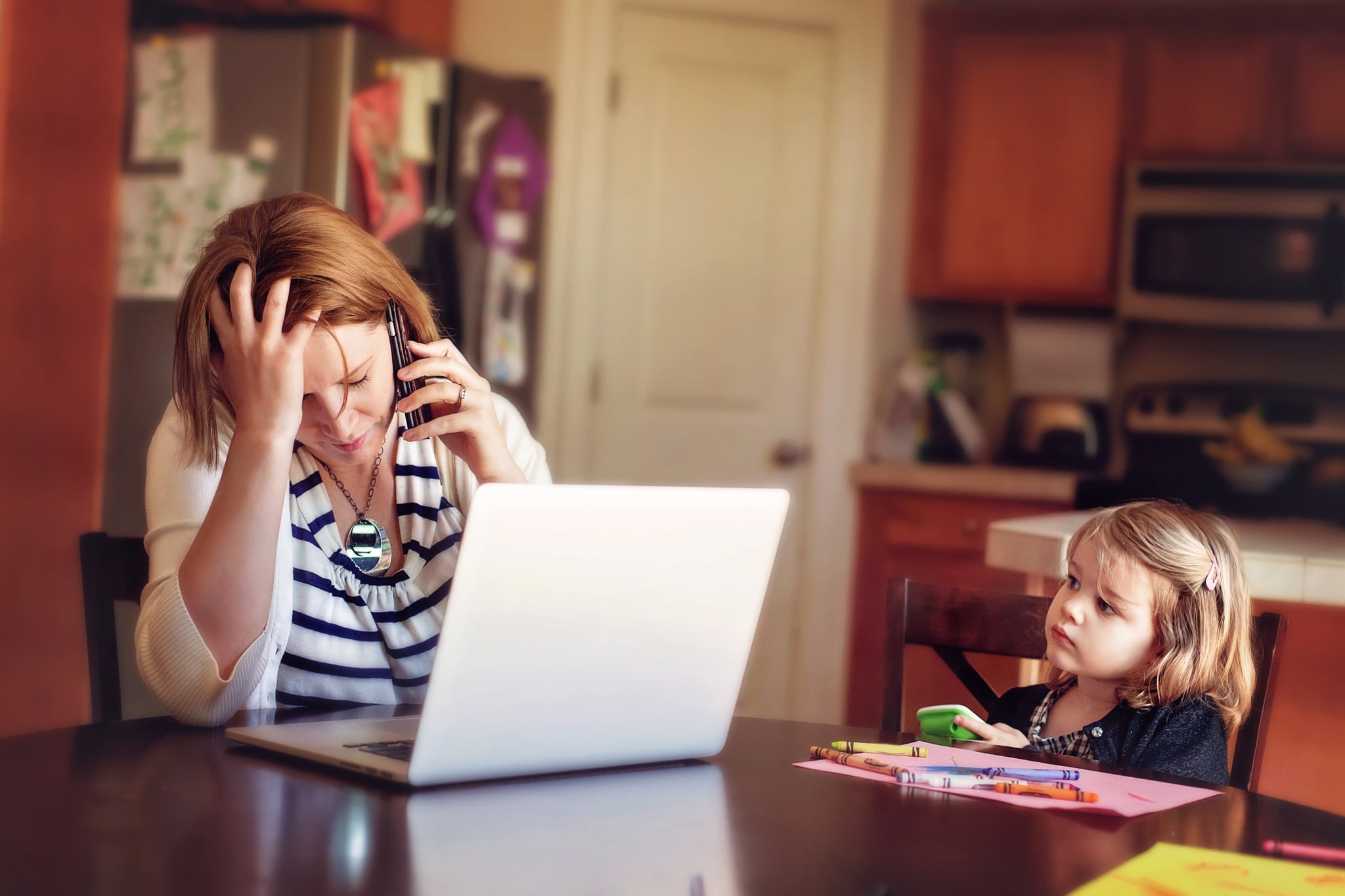How COVID-19 Is Affecting the Mental Load of Parents
The Pandemic Has Magnified the Mental Load on Mothers, and We're Drowning

When the pandemic began, it all felt new and alarming. Families had to quickly shift routines and behaviours. New phrases like "social distancing" emerged, and parents were suddenly faced with the reality of distance learning as schools began to shut down. We had to change the way we work, stock our living spaces with a "two-week supply" should we fall ill, and somehow keep it together when fear was setting in. In those early days, we all had our game faces on, ready to meet the pandemic head-on and doing our best to slow the spread.
Our "new normal" has been going on for months now, and it's affecting us all in different ways. Many are experiencing COVID-19 fatigue as the pandemic drags on. As a mum, I don't think I have ever been this mentally spent. The mental load of motherhood has intensified dramatically, as women in general have been carrying an oversize burden throughout the pandemic. According to a recent report from the United Nations, women make up 70 percent of the health and social sector workforce, making them essential workers and therefore more vulnerable to virus exposure. Also, the report notes that the closures of schools to help prevent the spread of COVID-19 "has a differential effect on women economically" due to the fact that women typically provide most of the informal care within families and are therefore more likely to lose their jobs. The longer a woman is out of the workforce, the harder it can be for her to get back in. For single mothers, these discrepancies are even greater.
On top of these issues, mothers are also facing daily challenges from an increased mental load. When I talk to fellow mums, I keep hearing the same thing: that we are drained from the constant (and heavy) decisions that we must continually make. Some decisions are big, such as how to continue working when we have kids at home doing remote learning. We worry about how we will take care of our families if we get sick and about how the pandemic is affecting our kids' mental health. Even smaller decisions, however, can feel daunting, too. Decisions like, should I let my son have a playdate? How can we safely celebrate the holidays? Should we disinfect our groceries? It's so much more than remembering dentist appointments and whether or not to buy milk at this point, although those "things to remember" continue as well. Many mothers feel overwhelmed juggling all that they were prior to the pandemic, with the added stress and responsibilities that come with parenting during a pandemic.
Recently, in my home state of Utah, a powerful woman doctor took the stage at our governor's weekly coronavirus address to plead with residents to wear masks and follow safety guidelines. She became emotional as she described how tired and overworked healthcare workers were feeling. It made me realise that taking extra steps to be safe and questioning our behaviours, while taxing, is vitally important and can make a difference. It's also important that we ALL step up and help one another.
The COVID-19 pandemic isn't just hard on mothers, it's hard on everyone, and we are all in this together. We can make a difference by simply being considerate of each other. We can pick up groceries for our elderly neighbours, buy school supplies for a single mother, and vote for policies that support mothers and families. Parents also need time to decompress now more than ever. Self-care may be a popular buzzword, but it's also vital for our physical and mental health.
There will come a time when we will return to some semblance of normalcy, but that feels worlds away for many of us right now. Mothers are strong, but we are also human and shouldn't be held to an impossible standard. Let's give each other (and ourselves) grace, as we are all simply doing the best we can.







